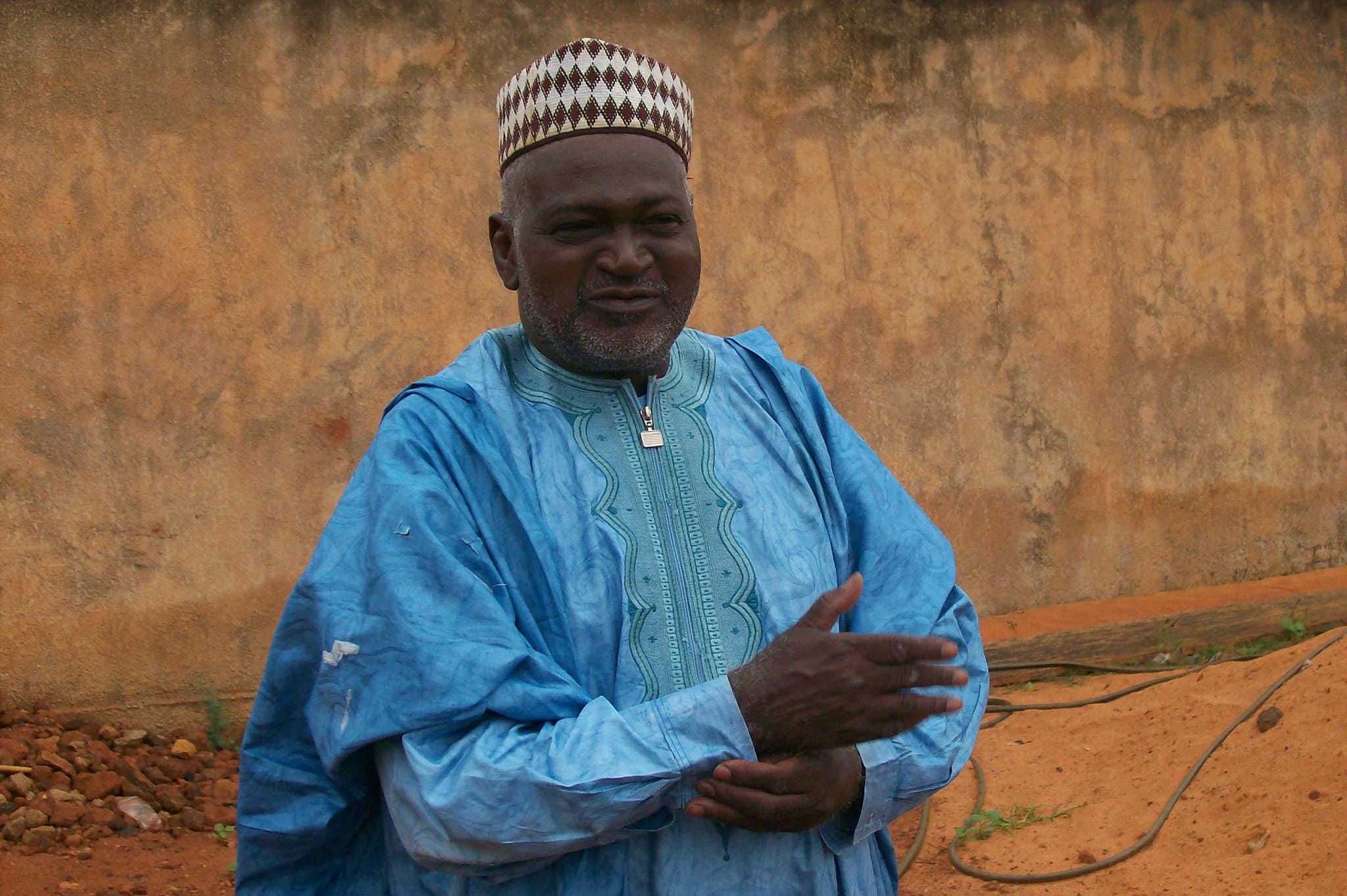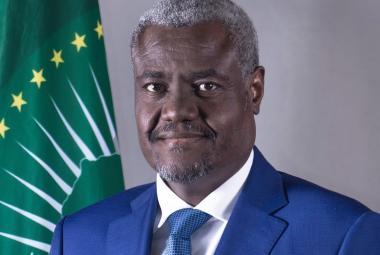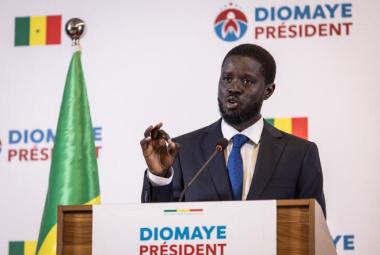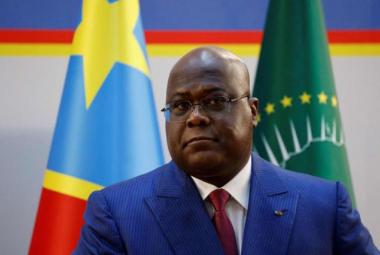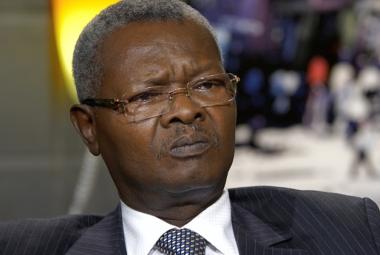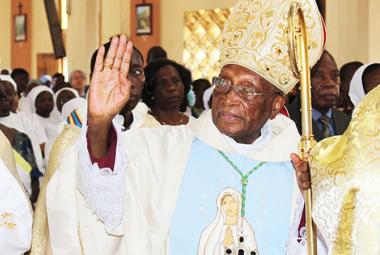Holder of a postgraduate doctorate in Development Sociology from the Institute for Economic and Social Development Studies (Institut d’études pour le développement économique et social - IEDS), Sanoussi Jackou was born in 1940 in Kornaka, in the Maradi region. Imprisoned for 11 years under the regime of the late Seyni Kountché, following a failed coup attempt, he was released on November 23, 1987 and returned to public service in March 1988. Former CDS-Rahama executive of Mahamane Ousmane, he is one of the main actors in Niger Republic political life. He notably served as Vice-president of the National Assembly of Niger Republic from 1993 to 1994 and was a Parliamentarian from 2004 to 2010. He was also a minister under the regime of the late President Ibrahim Baré Maïnassara. Since February 2, 1997, he has presided over the destiny of the Niger Party for Self-Management (PNA-Al'ouma).
With the disappearance of this singular political personality of Niger Republic, Afrique Destinations pays tribute to him, by publishing again, an article that Serge Mathias Tomondji had written and published in 2010.
I learned with sadness of the death, on July 18, 2022, of Sanoussi Tambara Jackou, one of the main actors in Niger Republic political life, since he was notably Vice-President of the National Assembly of his country from 1993 to 1994 and Member of Parliament from 2004 to 2010. I met Sanoussi Jackou in 2010 as part of a professional mission, when he was presiding over the destinies of the Niger Party for Self-Management (PNA-Al'ouma), and he spoke at length on the socio-political situation in Niger Republic and in Africa. At that time, Niger Republic, like several African countries, was still looking for its marks, 50 years after its independence. A vast territory of 1,267,000 km² with 14.2 million inhabitants, the country nevertheless has significant resources to succeed. Things had even started well during the first years of political autonomy, but the country was still looking for the right rhyme, between stability and socio-economic development. This is all that Sanoussi Jackou told me about, a rather lively character, a real library, who had a sense of detail and narration. A brief radioscopy that I publish here, for memory and for history...
… And yet, Niger Republic was not off to such a bad start! "Niger Republic has started to do well," said Niger Republic politician Sanoussi Tambara Jackou. A man with a vivid memory, who walks you enthusiastically through the history of the various Republics that have marked the political and socio-economic evolution of his country. Shocked in the early 1960s by the famous sentence of René Dumont who affirmed that "Black Africa got off to a bad start", Sanoussi Jackou quickly ended up wondering if, basically, the man was not simply wrong to to have been right too soon. Thus he remembers in particular that day in 1960 when, while he was in first class in Côte d'Ivoire, the professor announced that they had discovered, in the locality of Say, in the south-west of Niger Republic, 11 billion tons of iron! There was a great emotion in the room. We saw this country take off. But today, 50 years later, notes Sanoussi Jackou, "the announced happiness has not arrived".
In fact, very early on, the authorities of the First Republic were keen to develop the country by providing it with a minimum of industrial equipment. An option guided by the fact that at the dawn of its independence, “Niger Republic had barely ten significant industrial units on its soil”. Thus, the adoption of the three-year plan 1961-1963 (or interim plan), which made it possible to draw up “a systematic inventory of all the economic and social potentialities” of the country, participated in this desire for national construction. The political leaders of the time therefore inventoried the resources as far as mining, geological, hydrogeological, agronomic, pastoral, demographic, etc. of Niger Republic are concerned, before embarking, in 1964, on a ten-year plan. Two four-years plans were thus implemented, followed by an interim period of two years, to make the period 1964-1973 a decade of various achievements in terms of infrastructure.
AND CAME THE STEP!
According to temoust.org, the government of the First Republic set out to "equip the country with road infrastructure, housing and also economic units in several sectors and branches of activity": banking and insurance, trade, industry, energy, tourism... So much so that when it was overthrown by a military coup on April 15, 1974, it had a fairly flattering record, with some sixty modern units, in particular public establishments and offices, state and semi-public companies. Many people consider these first years of independent Niger Republic as a period of real political and economic construction, those in power having endeavored to place their actions in line with three main orientations: "national unity, raising the level life of populations and economic independence in interdependence".
is is undoubtedly what makes Sanoussi Jackou repeat that Niger Republic, whose budget rose from around three billion CFA francs in 1960 to more than 15 billion CFA francs in 1974, "is not off to a bad start". But, he adds immediately, the country has “continued badly”. In particular from the 1980s, with the introduction of Structural Adjustment Programs (SAP) all over the continent. A situation that led to the “liquidation of the achievements of the First Republic”, only five years after the advent of the Second Republic. During the period 1974-1991, we note, industrial and commercial facilities suffered from the economic withdrawal of the State, which gave way to national and international private actors.
At the same time, on the political level, testifies again Sanoussi Jackou, an "authoritarian regime, without freedom" has been established. The democratic opening has hardly been peaceful for this vast country with enormous mineral resources. Political differences, parochial squabbles and political intrigues have paved the way for instability that Niger Republic is still trying to correct. “The year 1995 was the most tumultuous”, notes Sanoussi Jackou, who evokes the serious institutional crisis in which the country was bogged down at that time when “the Prime Minister and the ministers were opposed to the President”. An uncomfortable and unbearable situation at the top of the state, which shattered the ruling coalition.
POLITICAL SALUBRITY
The recurrent incursion of the military into the political life of Niger Republic therefore did not stop after a new Constitution allowed the election and the investiture of a "democratically" elected president in 1993. Coups d'Etat succeeded one another, but curiously, and even fortunately, always to put the democratic train back on track. And each time it came to the idea of one of these "sweepers" to make his bed in the presidential palace when the time comes to leave, to twist the blow to the constitutional rules to change the democratic deal adopted by all, he was immediately brutally called to order by a new putsch! Mamadou Tandja knows something about it, which currently allows Niger Republic to experience, through its stubbornness, yet another military transition. Before him, Ibrahim Baré Maïnassara made the bitter experience of it, at the high cost of his life. And this is what founds the faith that Nigeriens place in the promises of the current authorities of the Supreme Council for the Restoration of Democracy (CSRD).
The military putsch that took place on February 18, 2010 in Niger Republic remains, for the vast majority of the population, a real operation of political salubrity and democratic restoration. And people of Niger Republic approve, on the whole, of the projects inaugurated since by the junta in power. The Supreme Council for the Restoration of Democracy, which has presided over the destinies of Niger Republic since this coup d'Etat hailed and applauded by all (or almost) has assigned itself three main missions. First, to clean up public finances damaged by a long reign of embezzlement and impunity, through a vast campaign to moralize public life. Then, to reconcile people of Niger Republic with themselves. And finally, restore democracy by organizing free and transparent general elections, for a return to a normal constitutional order.
Beyond the difficulties that have not failed to emerge in the accomplishment of these projects, the CSRD seems to have given pledges of good faith and determination, both to the people of Niger Republic and to the "international community" , who are however waiting for the effective holding of the elections to sublimate this umpteenth incursion of the army into the political life of Niger Republic.
SENTINELS OF DEMOCRACY
Indeed, this is hardly the first time that, faced with the mistakes and excesses of the Niger Republic political class, the military intervenes to restore order and democratic institutions. This role of sentinel of democracy seems to appeal to people of Niger Republic, who see it as the best defense against possible abuses by those in power, whoever they may be.
By thus putting an end to the "Sixth Republic" fabricated from scratch by Mamadou Tandja against a backdrop of "tazartché" (continuity), the junta in power in Niger Republic is part of an educational approach and intends to succeed in this sort of generalized catharsis, intended to reshuffle the cards for a redistribution of the trumps. And if some are worried about having to come to terms with the old political guard again, whose endless political quarrels keep the flame burning, the reality is there, stubborn, which clearly shows that "it's at the end of the old rope weave the new". It is to take this reality into account, while remaining attentive to the widely divided people on the issue, that the CSRD delicately removed certain measures deemed "discriminatory" - such as the age limit and the level of instruction of potential candidates for the presidency — of the preliminary draft Constitution which will soon found the Seventh Republic.
A downside, however, in the chorus of praise addressed to the ruling junta. The general opinion is that the conduct of the financial rehabilitation project leaves something to be desired and is akin to a witch hunt. A stone in the garden of the CSRD, which however continues the mission of "restoration of democracy" that it has assigned itself. For the moment in any case, it does not occur to anyone that the military will not hand over, at the end of their transition and we are waiting firmly, on the banks of the Niger River, for these elections of reconciliation and democratic restoration.
LAST TRANSITION?
The fact remains that people of Niger Republic opinion wants this transition to be the last and that now those in power understand that there is no point in tricking the institutions or the Constitution. On this vigil of electoral weapons, with one of the busiest agendas, people of Niger Republic want to write a new page in their history, and show the world that they are masters of their destiny. To do this, they aspire to only three fundamental things. First, a happy conclusion to the transition. Second, peaceful, free and transparent general elections. Third, respect for the new constitutional order, in a Seventh Republic that will put people, and everyone, at the heart of development strategies...
© Serge Mathias Tomondji
(in Notre Afrik N°4, October 2010



